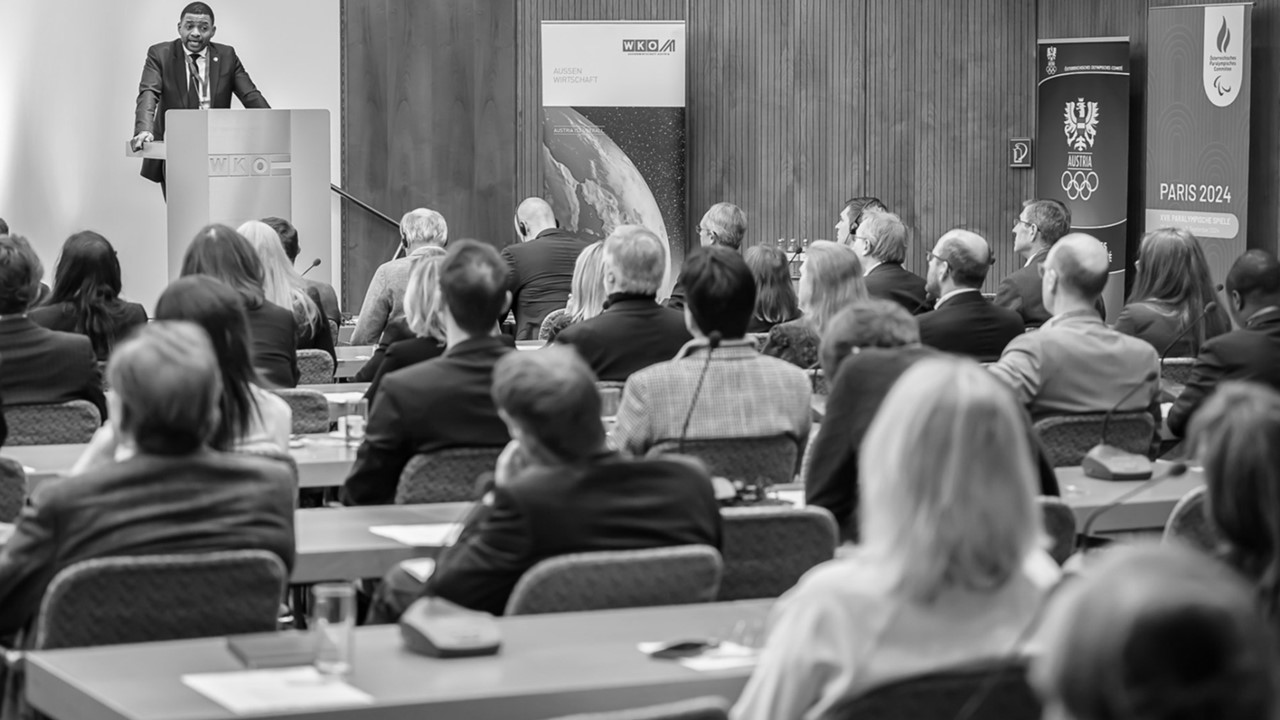At the invitation of the Vienna Circle, I spoke on March 20, 2024, at the headquarters of #WKO, the Austrian Chamber of Commerce with its 517,000 member companies. My mission was to demonstrate the contribution of competitive intelligence to the competitiveness of the Francophone space in general, and the attractiveness of African markets in particular, through examples and concrete cases.
Speaking in Vienna for the first time is a unique experience. Firstly, because it is the land of Brahms, Haydn, Liszt, Mozart, and Schubert. It’s in the air… Secondly, because in the current geopolitical context, no one can forget that on March 12, 1938, German troops marched into Vienna… Lastly, because Austrian companies are ripe for Africa.
According to the African Centre for Competitive Intelligence (ACCI), “competitive intelligence (CI) is a mindset, a device, and a coordinated process of rapid, legal, and secure questioning, collection, processing, analysis, and dissemination of intelligence useful for decision-making in a competitive, uncertain, or hostile environment.”
It is an essential tool for French-speaking public and private operators who want to increase their competitiveness, protect their domestic market, expand their market share, acquire new customers, retain their clientele, minimize risks, stay at the forefront of technology, and protect their informational assets.
In 2022, in Djerba, Tunisia, I started the Festival de l’intelligence économique francophone – FIEF (Francophone Competitive Intelligence Festival), to contribute effectively and measurably to the competitiveness of the Francophonie. This was done on the sidelines of the 18th Summit of Heads of State and Government of OIF member countries.
To recap, the Francophonie encompasses 321 million speakers in 112 countries and territories, representing 17.5% of the world’s population. It is the fifth most spoken language in the world, with 16.6% of global GDP, 20% of intra-community trade, $9 trillion USD of cumulative GDP, and $624 billion USD of intra-Francophone exports in the fourth quarter of 2023.
My view is that the main strengths of the Francophone space are a growing market (with a young and dynamic population), a rich and diverse economic space (with vast natural and human resources), and strong attractiveness for investors (with a relatively stable and favorable legal environment).
The main challenges of the Francophone space are reducing economic disparities among Francophone countries, developing infrastructure and digitalization, promoting entrepreneurship and innovation, and strengthening Francophone influence in the world. In light of this, African competitive intelligence emerges as the sword and shield of the competitiveness of the Francophone space.
Therefore, before the 240 participants who trusted me and came to listen, I presented concrete examples, comparative analyses, and shared experiences to support an unambiguous demonstration.
After this intervention, my hope is that the participants understood that competitive intelligence is a considerable asset for economic operators who want to stand out in a competitive and dynamic environment, such as the Francophone markets in Africa. By adopting it proactively and in a coordinated manner, the Francophone space can improve its performance, strengthen its competitiveness, and position itself as a key player in global economic development.
Guy Gweth



